Aim: To maintain winning form through the entire season by good management and maintenance of health.
This is when it gets interesting. It is also the time when most fanciers start making serious mistakes.
During competition medication is used to maintain health. It is vital that the birds are completely free of any health problems to give of their best. Winning birds are always not only fit but also healthy. If the natural immunity they have formed is not strong enough to keep them healthy during the inherent stress of racing, then medication is used to ensure that health is maintained, so that success can be ongoing and unnecessary losses avoided.
Each loft has its own set of parameters all of which affect disease. Loft parameters include such things as the genetic base of the birds, the loft design, the geographical location of the loft, and the way the birds are managed generally.
If the set of parameters governing a particular loft is unchanged then any health problem that occurred in previous years will predictably reappear. This is why successful, preventative health programs can be reapplied in particular lofts year after year.
However, some health problems are more likely to occur in a particular type of loft, or in lofts in particular locations. This explains why a program that works well in one loft is inappropriate in another. Good examples of this include Janssens and wet canker, and the correlation of cold, damp lofts with Ecoli. It seems that when raced under Australian conditions, Janssens take longer to form a protective natural immunity against wet canker than many Australian strains. Fanciers racing these birds therefore need to ensure very good control of this problem. Similarly birds living in cold, damp lofts are more vulnerable to Ecoli. Birds with these problems can still win but only provided that the fancier is aware of them and manages them correctly.
Two options are open to the fancier. He can have the health of his birds monitored through regular testing and treat his birds appropriately for his situation, or alternatively he can work through a health protocol blindly. This difficulty here of course is that his birds may have medications for problems that they don’t have, while at the same time be under treated for serious problems in his loft. He may in fact be using a health program that would work best in another loft.
Obviously testing and the wise use of medication is the way to go. Basically we don’t want to give unnecessary drugs, but also we don’t want to race poorly or experience losses due to an overlooked health problem.
Racing studs represent a great opportunity to study the effects of loft parameters. In many lofts fanciers have one or two strains and many of the birds are related. While in racing studs often many birds of quite different genetics are raced. In this situation there is one loft and one training and feeding regime, but many different genes and so the effect that this one parameter, i.e. the birds genetic make up, has on health can be studied. The results help to explain the conflicting advise that a new fancier can receive from experienced fliers.
If you ask 10 different experienced fanciers a question about pigeon management you are just as likely to get ten different answers. It is not that anyone is being non truthful, but simply that they are answering purely from their own experience and because each of them has a different set of loft parameters, each of which is likely to be different, their answer purely reflects what is correct for them. For example in a loft based on Janssens the advice may be that the birds are best raced only every three weeks. If the fancier doesn’t treat this may be due to the birds having a wet canker flare up after a race which takes three weeks to resolve, at which time the birds are competitive again. Goodgers often form a very strong natural immunity to wet canker at quite a young age. So a fancier that races Goodgers may suggest that, after a steady race, some birds should be doubled back because the first race can act as a conditioning race. And so we have it, different answers to the one question. Both correct but only for that loft. The correct advice to a novice should be to have his birds checked and see what is best for his loft.
Fanciers often ask, why did my birds get sick during racing? Disease can only appear in one of two situations:
Exposure to disease causing organisms, in particular new strains of wet canker and respiratory infection. Because these strains are not resident in their own loft, the birds cannot possibly have developed immunity to them.
For this reason, disease flare ups can occur in well managed lofts with resultant loss of form and variable losses.
Severe stress leading to flare ups of resident strains of organisms. Overcrowding and low hygiene are the obvious ones in poor lofts. In successful lofts unforeseen stresses, such as an unexpectedly difficult toss in cold weather, can occur. If and when disease occurs medication is used to:
Control disease while the environment or management flaw that lead to it occurring is corrected. The correct approach for a long term solution is not always obvious. For example, in birds with low numbers of coccidia on their fecal smear, the answer may not necessarily be an anti coccidia drug such as Baycox, but rather a reduction in the amount of tossing and a multivitamin supplement.
Control new diseases that enter the loft with returning race birds so that health, and with it fitness and race form can re establish.
It’s an interesting thing. If a fancier has seven good races in a twenty week program, then given the variabilities in wind direction etc, then one would expect his seven good races to be scattered through the program. Yet, in fact, this is rarely the case. More often than not his seven good races are likely to occur in a run of eight or nine starts. When his good run finishes it is explained simply by saying that the birds have “lost form”. Yet invariably, when we check these birds we find that Ecoli, wet canker or Chlamydia etc has become involved. Once a loft’s health problems have been identified, then they can be prevented. Then given a sensible tossing regime, a well designed loft, and astute care there is no reason why consistent form should not be maintained through an entire season.



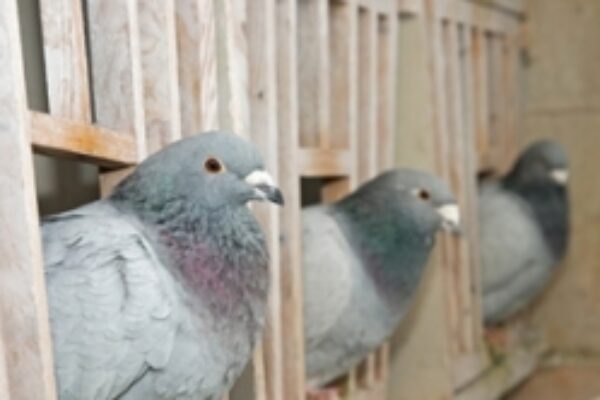
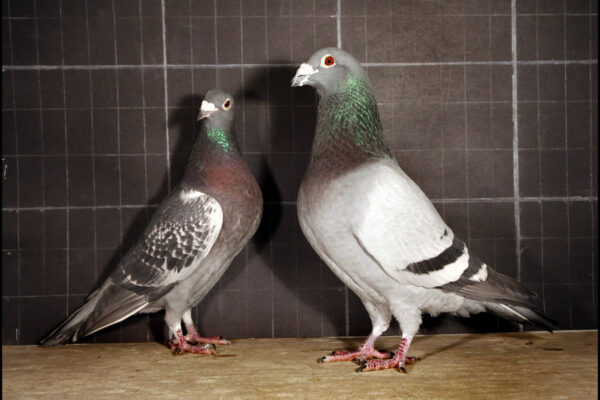
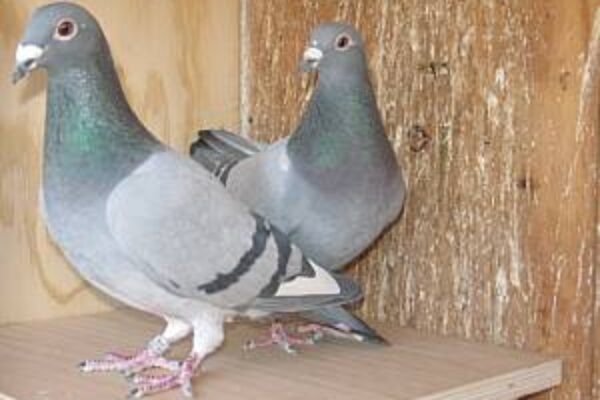
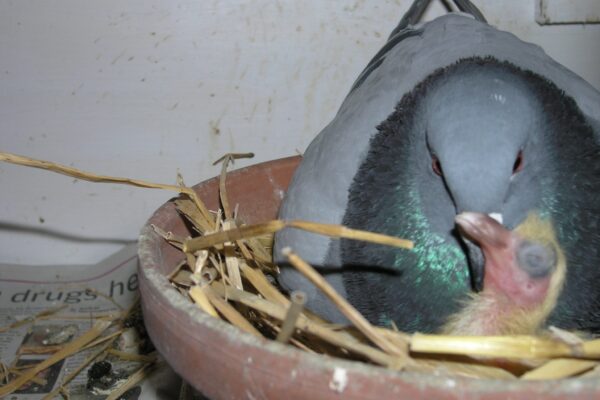
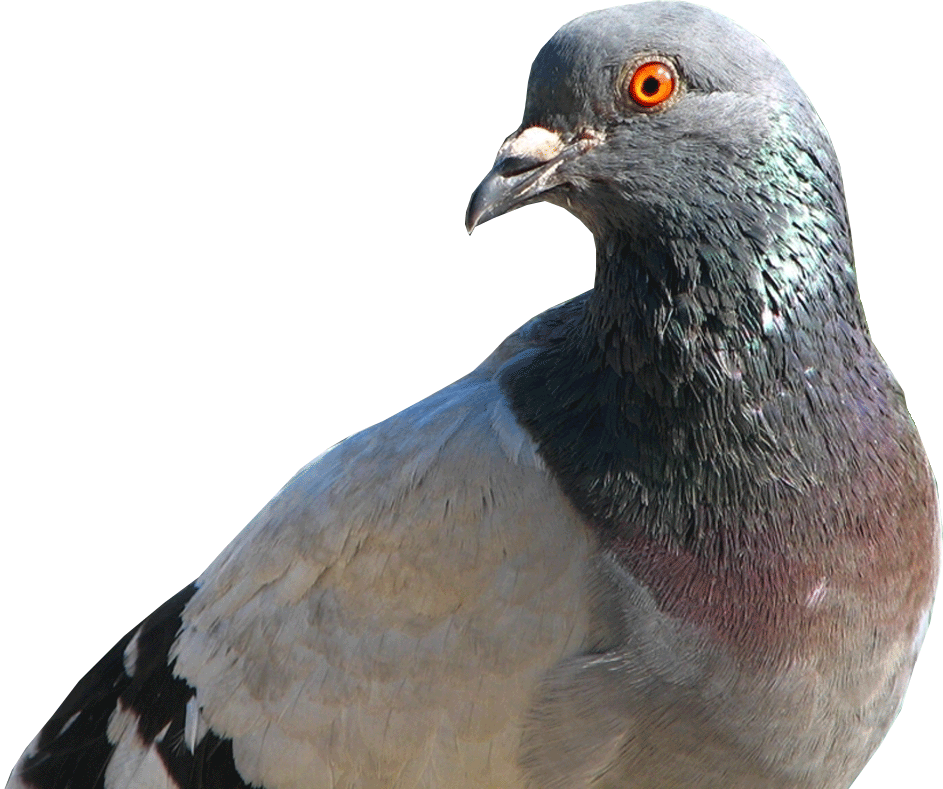

A poor quality pigeon in good health will beat a good quality pigeon in poor health in every race.
Medicating without knowing for sure what your bird has is a bad idea.
Some medications are poisons that can be hard on your bird.
Checking your birds for parasites is best.
Hi Jack every loft and climate is different as well as how well maintain and clean your trailer is
and world wide the weather changes every year and not for the better but you are better to use
natural products if you can but if you have a problem and have a vet or a lab to get them checked
you should do so A.S.A.P i know everyone cannot do this it depends on where you live then you
have to make a judgement call and if you need help ask a season fancier that you know for help.
Keep them flying Brad.
In other words stick to your own way of treating the health of your birds, which must suit your own birds enviroment. The succesfull fanciers learn from excperience, others ?
A lot of words to really say very little. It other words,nobody knows anything about how to keep your birds healthy.